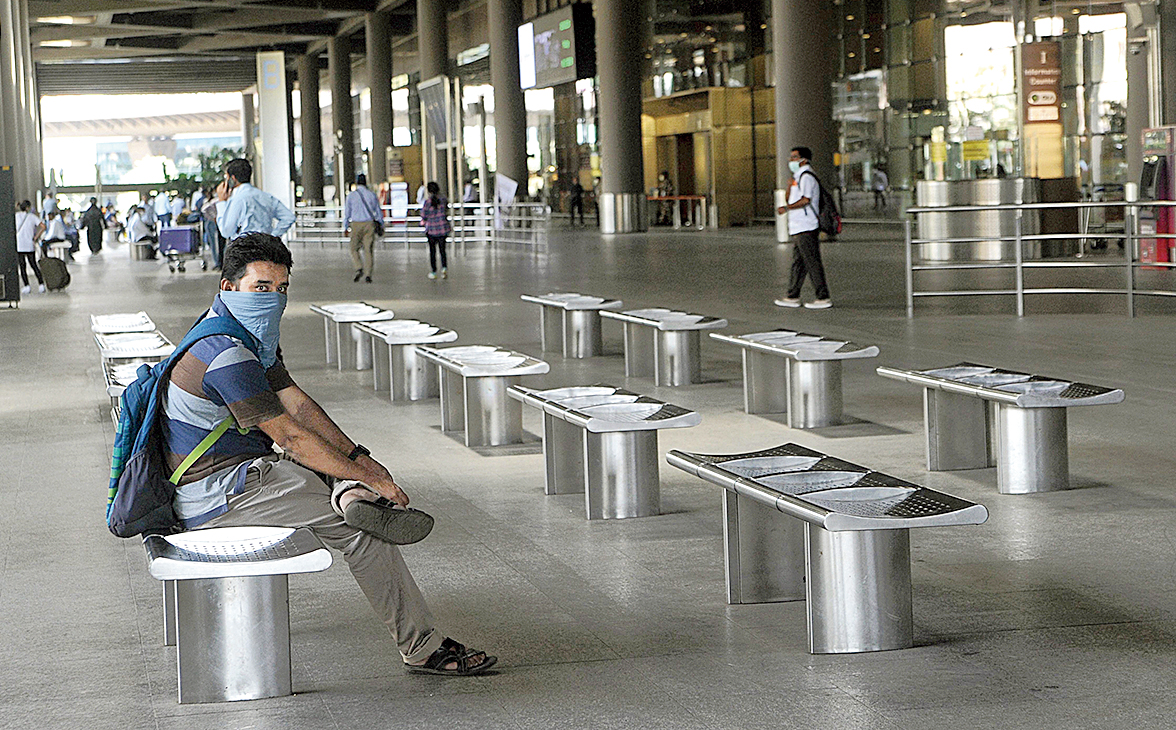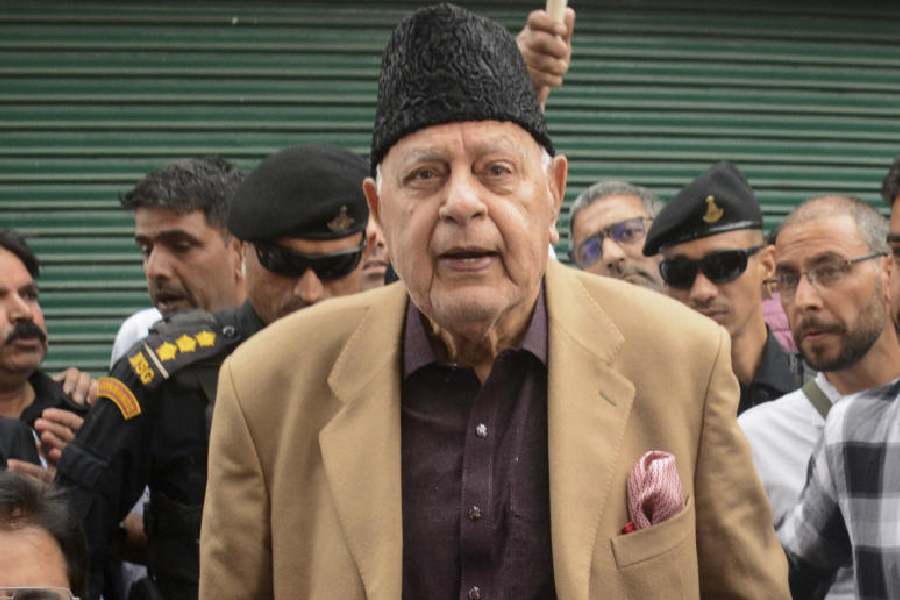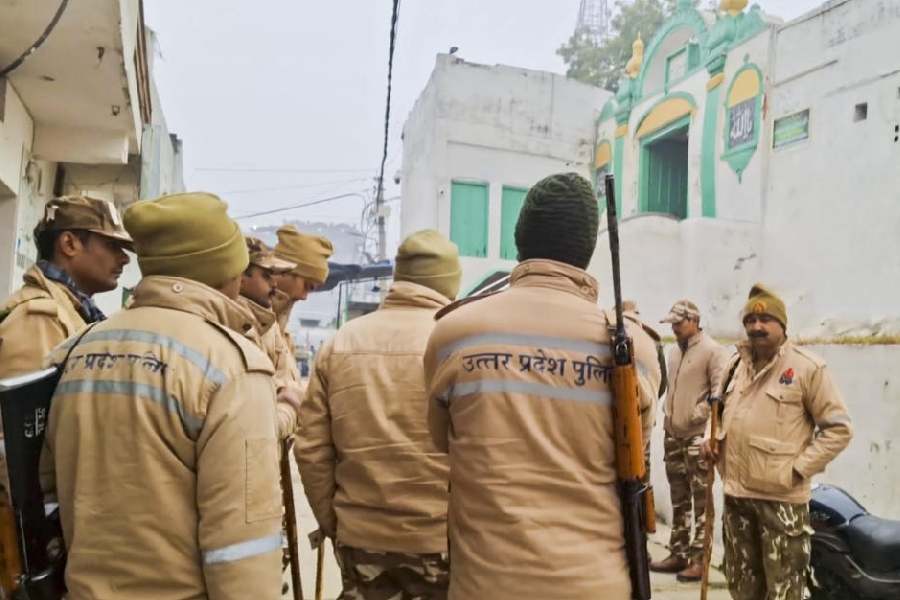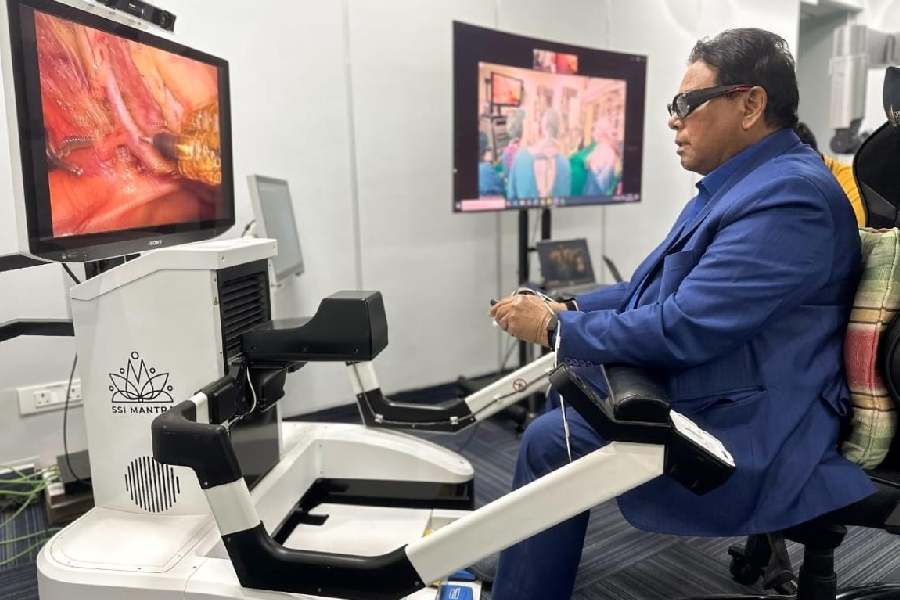The cabinet secretary has asked the states to enhance a 28-day health surveillance on everyone who entered India of late, pointing to an observed “gap” that he said could “seriously jeopardise” the country’s efforts to contain the spread of the novel coronavirus.
The top bureaucrat’s letter to chief secretaries technically covers all travellers who arrived in the country since January 18 when the surveillance was officially supposed to have begun.
But as more than two months have passed since then, the directive is expected to cover those who have entered India between the end of February and March 23, when all international flights were barred by India.
Cabinet secretary Rajiv Gauba, in the letter sent on Thursday to the chief secretaries of the states and Union Territories, said more than 1.5 million air passengers had entered the country since India began screening incoming travellers on January 18.
Gauba’s letter does not quantify the gap or specify in which states the gap between incoming travellers and those under surveillance has emerged. But the health ministry had earlier this week said the National Centre for Disease Control had through its local surveillance units cumulatively placed 187,904 people under health surveillance.
Among these, 35,073 have completed their 28-day observational periods.
The stated number accounts for only a minuscule segment of the 1.5 million passengers. It is not clear whether the remaining passengers, numbering over 1.3 million, had been kept under health surveillance.
Gauba wrote in the letter: “There appears to be a gap between the number of international passengers who need to be monitored by the states/UTs and the actual number of passengers monitored. This may seriously jeopardise our efforts to contain the spread of Covid-19 (coronavirus disease).”
The cabinet secretary has flagged the surveillance gap at a time health ministry officials have stressed that the “failure” of any individual to contribute to the country’s efforts to contain the virus could push back the government’s efforts “to zero”.
Lav Agarwal, a joint secretary in the health ministry, on Friday described the cabinet secretary’s letter as a part of “routine communication” intended to get the states to “continue their momentum” and ensure that all international passengers are monitored up to 28 days.
During a media briefing, Agarwal also iterated concerns that health ministry officials had flagged earlier -– the need for individuals to cooperate with the government’s pleas for social distancing.
If even one person does not cooperate, the whole effort by the government will be “zero”.
But public health experts have stressed that the efforts to contain the virus should also have included 14-day mandatory home quarantine orders for all the 1.5 million passengers who arrived in India since January 18. This would have prevented infected people from carrying the virus to anyone outside their own households and keep the country’s coronavirus numbers lower than they are today.
Under guidelines released by the Union health ministry in early January, all incoming passengers screened at airports had to self-monitor themselves up to 28 days and report to local health authorities if they developed any symptoms.
The district-level units of the NCDC – an arm of the health ministry – were expected to keep under health surveillance all incoming travellers.
The Bureau of Immigration has shared with the states and UTs the details of the more than 1.5 million air passengers who had arrived in the country between January 18 and March 23.
The airport screening and the 28-day surveillance were intended to make up a two-pronged strategy to contain any virus ferried into India by international travellers because the thermal scans in airports would not detect those incubating the virus without symptoms.
In his letter, Gauba referred to concerns that most people who had tested positive so far in India had had a history of international travel.
“It is important that they are put under close surveillance to prevent the spread of the epidemic,” he wrote.
“I request you to ensure that concerted and sustained action is taken urgently to put such passengers under surveillance immediately,” Gauba said, asking the states and Union Territories to engage district authorities in the surveillance efforts.











